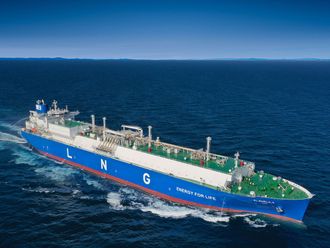London: Oil major BP and Russia's state-controlled Rosneft agreed to a share swap under which they plan to jointly explore for offshore oil and gas in a deal that gives the UK company access to areas of the Arctic previously reserved for Russian oil companies.
BP, recovering from its Gulf of Mexico oil spill disaster, will swap 5 per cent of its shares, valued at $7.8 billion (Dh28 billion), for 9.5 per cent of Rosneft in an agreement that immediately raised concerns about US economic security from at least two American lawmakers and criticism from environmentalists.
The deal covers huge areas of the South Kara Sea in the Arctic that BP said could contain billions of barrels of oil and gas and had been previously off limits to foreign companies.
The pact, which is expected to be completed in a few weeks, highlights a rebound in relations with Moscow both for BP and its Chief Executive Bob Dudley, who was forced to flee Russia in 2008 after heading BP's Russian joint venture, TNK-BP, which is half-owned by BP.
However, the pact was not welcomed by everyone. US Congressman Edward Markey, who is the top Democrat on the House Natural Resources Committee, immediately called for a review of the deal by US regulators to see whether it affects the national and economic security of the United States. He noted that in 2009 BP was the top petroleum supplier to the US military.
And Republican Congressman Michael Burgess, who is on the House Energy and Commerce Committee, also said the deal "deserves some analysis and scrutiny" by the government's Committee on Foreign Investment in the United States given BP's ownership of critical oil assets in the US.
Environmental group Greenpeace, noting the fragility of the Arctic, also lashed out. "Now BP has bought its way into the Arctic by the back door. It seems the company learned nothing last year in the Gulf of Mexico," Charlie Kronick of Greenpeace said in a statement. "The Arctic is the most fragile environment in the world in which to drill for oil and there can be no confirmation yet that BP has learned the lessons for the Gulf of Mexico disaster," added Greenpeace spokesman Ben Stewart.












